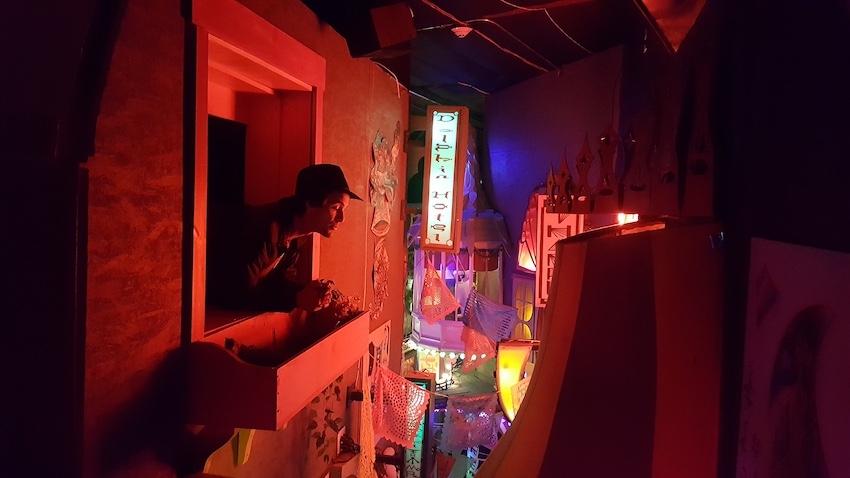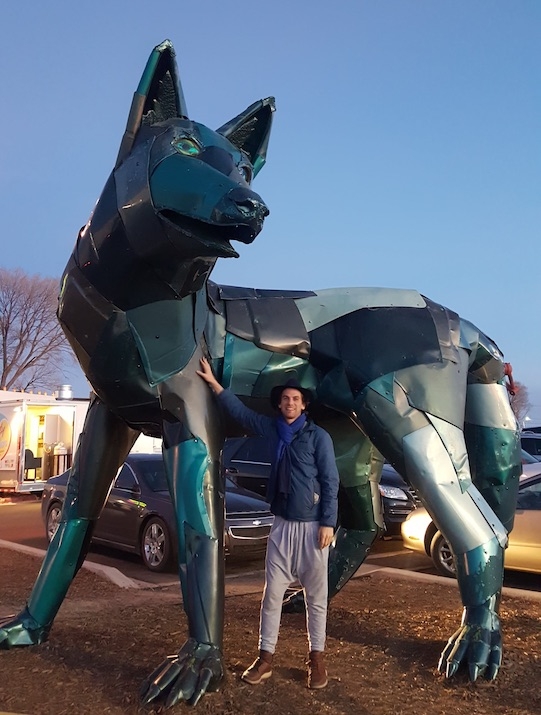Going to the Global Sustainability Summer School
I am very excited about this news! I found out in early February that the Santa Fe Institute (SFI) was offering the course in July 2019 and was immediately fascinated.

I got accepted!
I am very excited about this news! I found out in early February that the Santa Fe Institute (SFI) was offering the course in July 2019 and was immediately fascinated. The course takes two of SFI’s core theme; interdisciplinary studies and complex systems studies and applies those to the relationship between cities and sustainability. I applied soon after finding out about the course.
Thankfully I have been accepted, and am now gleefully checking the student list as folks fill out their little bios. I am very curious to see what sorts of people are going to make up our cohort and what their respective paths and journeys have been to this point. Already we have representation from India, Mexico, Jordan, Nepal, China, the USA, and other regions, with a mix of academic, public sector, and private sector folks.
What is the course about?
2007 was the turning point at which more than half of humanity lived in urban settings; in cities. This urbanization has been building over the last few centuries, and is interwoven with other significant trends, such as industrialization and globalization. Cities can be thought of as complex systems, with many variables, inputs, outputs, feedback loops. This frame can be applied both to their place in a globalized society and economy, and also their internal workings with cross city movement, support systems (sewage, power, communications, etc), social life and a city’s relationship to its physical surrounds. The course certainly seeks to look at cities as complex systems and to unpick numerous aspects of their make up from a sustainability point of view. As it stands, the archetypal way of being for cities is that they are heavy coalescing points for resources and specialization, that are dependent on sucking in vast resources and people from elsewhere. This has typically occurred in an unsustainable fashion.
Why the sustainability focus for cities?
The interwoven trends of urbanization, globalization and industrialization have rapidly shifted humanity’s relationship to the environment, namely through increased consumption of resources and increased strain on ecological systems as a result of human activities. The 21st century is seeing a shift in the global climate at a speed which the earth has not seen. The speed of this shift is generating climate-based chaos in ecological systems across the globe. These systems have buffers and feedback loops to maintain some level of homeostasis or stability within systems but the change is so rapid that many of these stabilizers are exhausted or at risk of failing. These failures can take years and decades to play out, longer than the typical attention span of citizens and decision-makers today but barely a blink of the age from a ecological change perspective.
Humanity’s current mode of being is unsustainable. Something must change, and it will change, whether we are in control of that change or not.
Since 2007, the proportion of humanity living in urban settings has only increased. If we are going to reach a point where humanity can sustain our population levels, we have to find ways to make cities more sustainable, since that is where the bulk of humanity has concentrated.
There are yearnings in some circles for a full ‘return to the land’; a move away from urban settings and back to more rural ways of being. While the cultivation of our relationship to nature is often a missing part of urban life (and worthy of being addressed!), the rejection of city-life as a whole mode of being is very likely an unattainable goal for most. There is a curious (and small) intersection of peoples who are ‘privileged’ enough to be able to make this transition back ‘to the land’ (or are already there in a fashion) and reject urban life altogether. However, it is difficult for most. Cities and urban life, as the predominant way of being for humanity, need to be centered in our efforts to prevent and mitigate climate chaos.
What is drawing me to the course
I love cities. I love the energy of them, the opportunities, the richness, the diversity that is possible. I want their depth and positive aspects to continue. But they can be soul-destroying, denaturing and unsustainable. I want to see how we can save them and this course offers some interesting opportunities to explore that.
I want to spark a shift within my company, HERE technologies, in providing geo data and services that help answer questions about sustainability and cities. The institutional inertia I am up against is sizable but I will have a crack at it!
Another pull is to meet, be inspired by and support all the other people draw to this course. To strengthen my own path towards addressing climate chaos and to help others on their own paths in regards to that. Obviously I will take a geospatial angle on the various problem sets we encounter. But I also hope to share my experiences with rites of passage, nature and other more social and societal aspects of this challenge space.
I am also very plainly excited to return to New Mexico. The area around Taos and Santa Fe is a special one. And I hear Meow Wolf has a new story-line!
Certainly, I consider myself part of the privileged group that might be able to have a go at getting away from the globalized interdependency of city-life. I have sufficient resources, skills and inclination to make a decent crack at it if I so chose to do so at some point in the future. Regardless of whether I do or not, the importance of how effective we are at making cities sustainable will have huge implications for my own life, that of my children and of the fate of humanity and much of the earth’s current bio-diversity.
A full course description here

